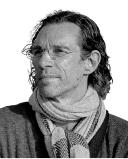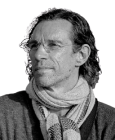Consciousness
When the Inner Skill Enriches Self-Experience
Self-experience is a controlled hallucination.
Posted October 27, 2023 Reviewed by Hara Estroff Marano
Key points
- Experience is created by sensations in an interactive relationship with predictions and emotions.
- How we are controlled by this interaction depends on how we cultivate our capacity for mental perception.
- We can learn to cultivate mental strength by enriching our habitual self-experience.
The Predictive Processing Perspective
Who are you when all you ever had is lost? What remains of a person when all our social structures and cultural possessions fall away? This is a situation in which more and more people on this planet find themselves. Think of the many refugees, the homeless, the people in war regions, in earthquake zones, and in water flood areas who try to survive. What would be your self-experience if all your properties, titles, bank accounts, family, and social networks fell away?

This question forces us to reflect on the essence of what it means to be human: the core of our identity. The cognitive and psychological sciences of recent decades confront us with a new perspective on our minds. As long as we studied the mind, we believed that the flow of our senses determined what took place in our perception. As it turns out, nothing could be further from the truth.
A powerful new perspective appeared that thoroughly challenged this view. It turns out that our mind is not a passive receptive space but a highly dynamic, always active builder of our perceptions and experiences. This means that a reciprocal interaction between senses and memory is what is fundamentally left of ourselves when all structures and possessions fall away.
Wherever we end up, and whatever remains, it is these building processes of our mind sculpting our experiences from the past that we will make our choices. This mental activity creates the world we perceive and the emotions we will experience.
Self-Experience as a Controlled Hallucination
This view on our mental activity is advanced by people like Karl Friston, Andy Clark, Anil Seth, and Lisa Feldman Barrett, to name a few. We can see this perspective as a cognitive revolution. Active inference or predictive processing are some of the labels given to this paradigm shift that has emerged from the interdisciplinary work of many neuroscientists, cognitive philosophers, and psychologists.
Our experience always appears to arise from an interaction between, on the one hand, predictions and expectations produced from our memory, life history, and culture and, on the other hand, the actual activity of our senses. At the intersection of that exchange, our ordinary experience emerges.
As Anil Seth, British researcher in the field of consciousness sciences, describes,
"And that normal perception—in the here and now—is indeed a form of controlled hallucination." (2021, p 127)
Even our self is a special form of controlled hallucination. So, what remains is an experience built largely from our life’s history. The past plays a leading role in our active production of the present.
As Andy Clark, Australian researcher in cognitive philosophy, declares,
"Nothing we do or experience—if the theory is on track—is untouched by our own expectations. " (2023, p XIII)
So, what remains when all we ever had is lost, is our mind actively predicting our reality and creating our current experience from past experiences.
Emotions are the collections of internal actions that respond in a coordinated way to these perceptual events. (Damasio, 2021) Our emotions color our experiences, guide our choices, and give power to our motivations. Emotions are the life regulations that support what we are. These embodied values interacting together with our predictive processing mind make us who we are when everything falls away.
The Inner Skill to Enrich Our Habitual Perception
Experience is created not just by the flow of sensations coming from the world but by the interactive relationship between a stream of predictions and emotions that arise from within. Experience arises, as it were, as a collision between forces from opposite directions. Are we the hallucinating subordinates of those forces?
To what extent we are at the mercy of those powers depends on how we have learned to cultivate our capacity for mental perception. Mental perception is the possibility of human consciousness to observe directly the mental events happening in our own minds. This capacity for observation exists next to the automatic predictive processes.
The good news is: We can learn to cultivate this capacity for mental perception. Whether we are blindly absorbed in the predictive flow that automatically creates and shapes our controlled hallucinations depends on this possibility of our awareness. We can learn the inner skill to slow down and partially observe the mental dynamics going on in our own minds. This way we create a new self-experience.
In this new self-experience we can feel how we open up the closed stimulus-response chain. In this opening, a new observation happens that gives us the possibility to make a choice. We can feel how the sculpting process of our experience is transformed. We can feel a mental strength coming from this potential to choose.
This mental strength we can cultivate shows us the human we can become. It is a strength that gives us the clarity, the openness, and balance of mind. The result is resilience, joie de vivre and the courage to live: These are the qualities that remain when we are stripped of all social structures and cultural possessions. It is this humanness that lies beneath the habitual tendencies of our ordinary categorizing mind: Mental strength growing from a new self-experience enriches who we can become. So yes, we can learn a little to manage our controlled hallucinations and habitual categorizations that polarize the world.
References
Clarck, A. (2023). The Experience Machine. How Our Minds Predict and Shape Reality. UK, Allen Lane.
Damasio, A. (2021). Feeling & Knowing. Making Minds Conscious. New York, Pantheon Books.
Seth, A. (2021). Being You. A New Science of Consciousness. London, Faber & Faber Ltd.




